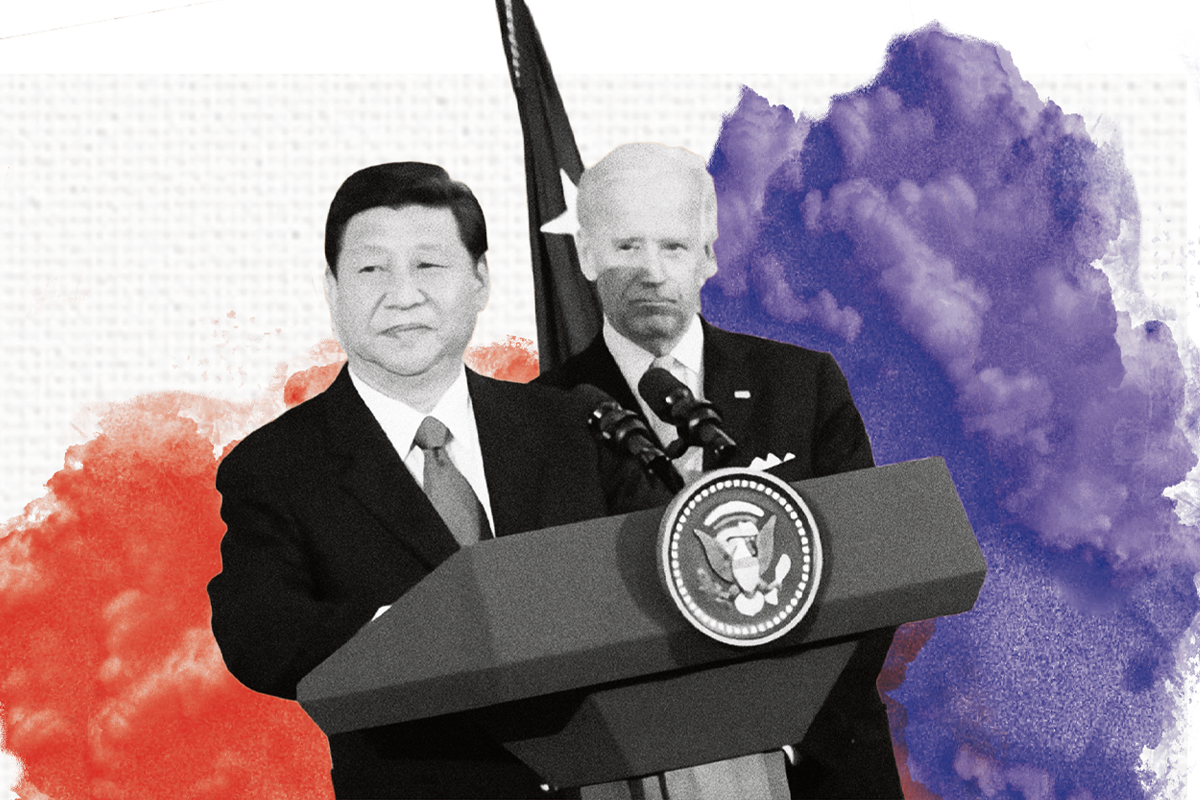New Hollywood blockbuster ‘Top Gun: Maverick’ revives the 1980s film franchise in order to reminisce about the power of US imperialism. In doing so, however, this sequel highlights Washington’s anxiety, as American dominance wanes.
“The future’s coming and you’re not in it…The end is inevitable. Your kind is headed for extinction” (Vice Admiral ‘Cyclone’)
Top Gun: Maverick is, like its predecessor, a very expensive recruitment drive for the US Navy. But the world – and US imperialism’s place within it – has changed significantly since 1986.
WARNING: THIS REVIEW CONTAINS SPOILERS
As a piece of propaganda, it is a call to arms for the US to redouble its efforts to maintain its ailing position as the world’s number one imperialist power. In doing so, it cannot help admitting the reality of America’s relative decline.
Every film needs a personal story. Its protagonist, ‘Maverick’, played by Tom Cruise, is thirty five years older, and approaching retirement. The film begins with him desperately trying to revive the military programme he is a test pilot for, in face of competition for funding from a new drone scheme.
To prove its worth, Maverick does something only a human being can do – he breaks the rules, taking the prototype plane beyond its limits.
This sets the tone for the film, both on a personal and political level: the film is about arresting decline by means of superhuman efforts.
Nostalgia
Cruise’s character fights against decline by embracing it. He has the same arrogant swagger as his ‘80s version, and seems determined to prove that his dated ways remain the best.
As with so many recent films, it is a nostalgia fest. It is part of an increasingly large number of films and television that revive franchises from several decades ago, such as Jurassic World, Cobra Kai (Karate Kid), Creed (Rocky), The Matrix, and Trainspotting 2.
By looking back on the protagonist’s past heroics, and an era that has subsequently passed, along with all their regrets and the undeniable fact that the hero is now old and tired, these melancholic films appeal to an ageing audience.
The proliferation of these films says a lot about western capitalism and its stagnation. The best culture capitalism now produces is only capable of looking backwards.
Decline
 The plot is about the USA’s loss of technological edge to an unnamed country. We are told throughout the film that the enemy has ‘fifth-generation’ fighter planes – that is, the most advanced type of military planes in existence. China and Russia are the only non-western countries to have developed such planes.
The plot is about the USA’s loss of technological edge to an unnamed country. We are told throughout the film that the enemy has ‘fifth-generation’ fighter planes – that is, the most advanced type of military planes in existence. China and Russia are the only non-western countries to have developed such planes.
Not only that, but the air-defences of the enemy are so advanced as to negate the capabilities of the US’ own fifth-generation fighter plane, and so our heroes are obliged to use the older F-18. This will put them at a massive disadvantage, should they be spotted and dogfights with the enemy’s more advanced planes ensue.
This sets up the basic anxiety the film gives expression to: now that the US no longer has an overwhelming technological edge, how can it continue to dominate and exploit the world?
The film’s answer to this problem is that in such a situation, everything depends on the quality of the human material. Can the US produce pilots sufficiently skilled, intelligent, and brave to overcome the opponent?
Of course, this is militarily false. The US’ military struggle with China will not be played out through dogfights and other forms of toe-to-toe combat, but precisely by means of the deployment of superior military technology. Hence Washington’s refusal to intervene directly in Ukraine. Direct combat with the Russians would be too costly.
Anxiety
 Unsurprisingly, the film concludes that the superior creativity and daring of American pilots will win the day.
Unsurprisingly, the film concludes that the superior creativity and daring of American pilots will win the day.
The movie paints the US not as imperialist, but as the upholder of the ‘rules based international order’. It is for this reason that the film has to justify the mission, which is to destroy an enemy facility, on the grounds that this facility breaks an international treaty.
And yet Cruise’s method in the film is to break the rules, to think outside the box, and to take the planes beyond their safe limits. Bold rule breaking is, apparently, the only way their inferior aircraft will be able to defeat the enemy.
The message is clear: the US sets the rules and polices them, but must be allowed to break them to maintain its domination.
Thanks to their daring creativity in the air, our all-American heroes come out on top, thereby securing US military dominance – at which point we are treated to a bit of camaraderie between the pilots, who celebrate with a league table of who has the most kills.
Nevertheless, the anxiety of US imperialism is unmistakable. No one seriously thinks the US can maintain dominance over China purely on account of its old school heroes. The film is therefore partly nostalgic wishful thinking for US imperialism, and partly a call for good old-fashioned American unity to confront China.
In reality, the relative decline of US imperialism is irreversible. And for this reason so are the deep divisions in American society.






